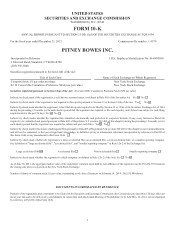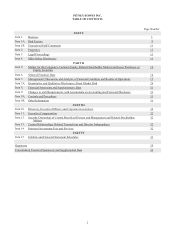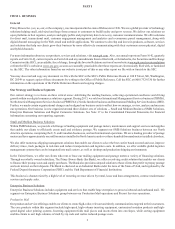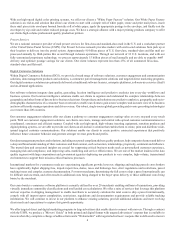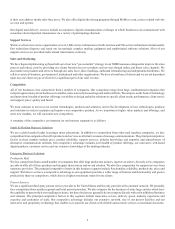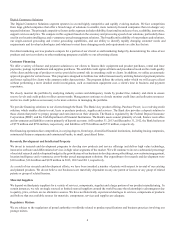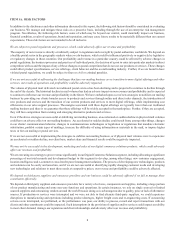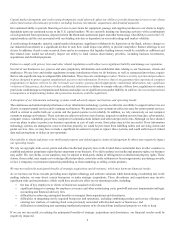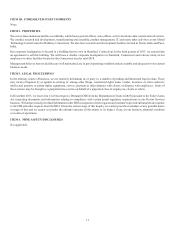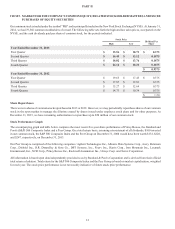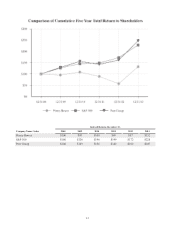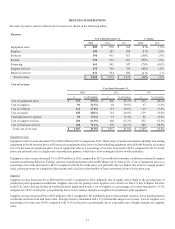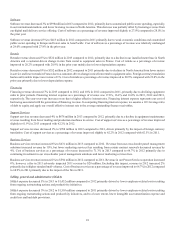Pitney Bowes 2013 Annual Report Download - page 21
Download and view the complete annual report
Please find page 21 of the 2013 Pitney Bowes annual report below. You can navigate through the pages in the report by either clicking on the pages listed below, or by using the keyword search tool below to find specific information within the annual report.10
If we fail to comply with government contracting regulations, our operating results, brand name and reputation could suffer.
We have a significant number of contracts with governmental entities. Government contracts are subject to extensive and complex
procurement laws and regulations, along with regular audits of contract pricing and our business practices by government agencies. If
we are found to have violated some provisions of these contracts, we could be required to provide a refund, pay significant damages, or
be subject to contract cancellation, civil or criminal penalties, fines or debarment from doing business with the government. Any of these
events could not only affect us financially, but also adversely affect our brand and reputation.
Our operations expose us to the risk of material environmental liabilities, litigation and violations.
We are subject to various federal, state, local and foreign environmental protection and health and safety laws governing, among other
things:
• the generation, storage, use and transportation of hazardous materials;
• emissions or discharges of substances into the environment;
• the cleanup of contaminated sites;
• substances that may be subject to regulation in the manufacture, distribution, use or disposal of our products; and
• the health and safety of our employees.
Environmental laws are complex, change frequently and have tended to become more stringent over time. If we are found to have violated
these laws, we could be fined, criminally charged or otherwise sanctioned by regulators. In addition, private parties could bring personal
injury or other claims due to the presence of, or exposure to, hazardous substances. Certain environmental laws can assess liability on
contaminated sites retroactively, on a joint and several basis, and without any finding of noncompliance or fault. From time to time, we
may be involved in litigation over these issues. The amount and timing of costs under environmental laws are difficult to predict and
there can be no assurance that these costs will not materially adversely affect our financial condition, results of operations or cash flows.
We may not realize the anticipated benefits from our planned implementation of a new Enterprise Resource Planning (ERP) system.
We will begin implementing a new ERP system in 2014. The implementation will occur in stages and is expected to provide operating
cost savings through the elimination of redundant systems and strategic efficiencies through the use of a standardized, integrated system.
We will make a significant investment and incur incremental expenses over the course of the implementation of this ERP system. If the
implementation of the system is not successful, the operating cost savings and strategic efficiencies may not be obtained or sustainable.


